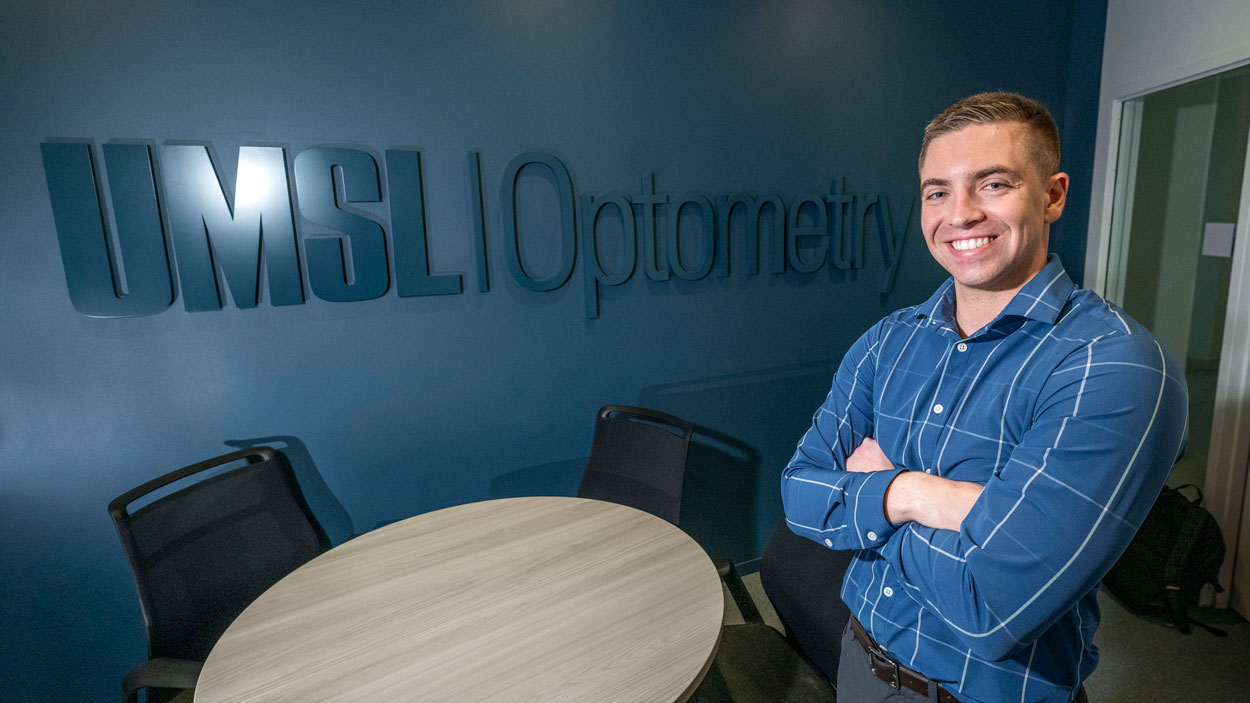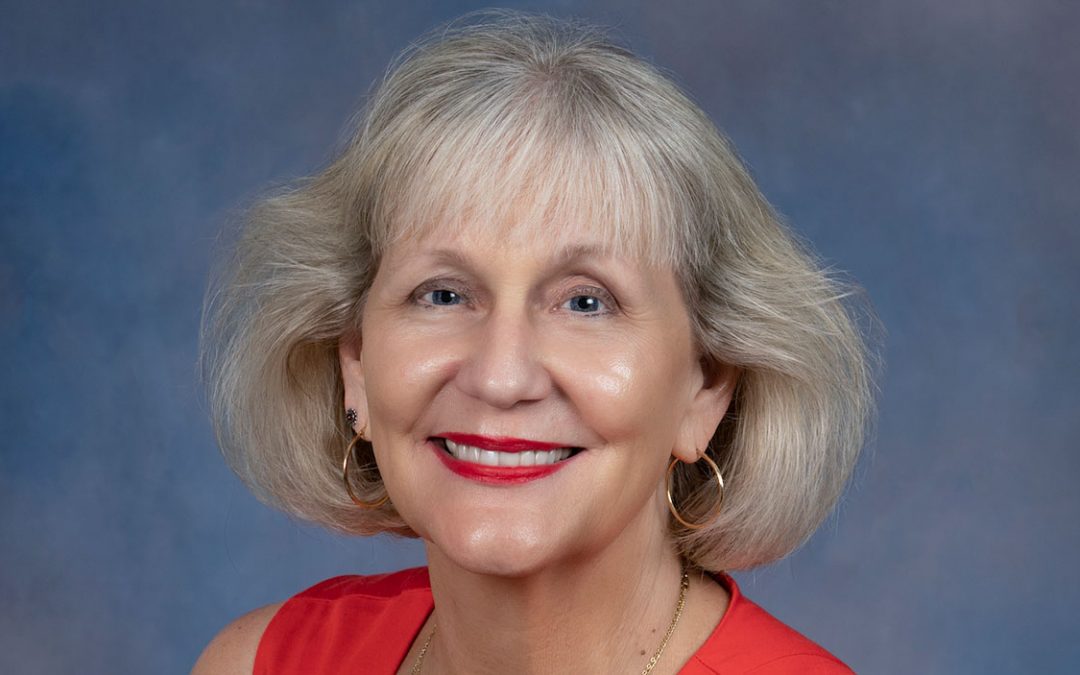
Cameron Schroeder graduated from the College of Optometry this month. While in school, he built on his passion for research and presented posters at several national conferences. (Photo by Derik Holtmann)
Cameron Schroeder likens his experience in the College of Optometry at the University of Missouri–St. Louis to a growth spurt. On his first day of class, the Burlington, Iowa, native didn’t even know what an astigmatism was. Growing up as an athlete, he’d envisioned a career as a physical therapist, but his interest shifted to optometry after receiving LASIK eye surgery at 21. He never worked at an optometry practice before starting school, though, and initially had a difficult time grasping the language his first year.
He didn’t realize how much his understanding of the eye had changed until he came home for Thanksgiving and Christmas during his second year of school. Around the dinner table, family members would share updates about their own eye conditions or recent cataract surgery and Schroeder was easily able to answer their questions. Since then, he’s felt more confident in his skills each day. When he helped out with the white coat ceremony for the 2027 graduating class this spring, he couldn’t believe how much he himself had grown over the past two years.
“It would be like if someone hit a growth spurt and they didn’t realize and they grew a foot,” he said. “You look back at an old photo, and it’s like, ‘Wow, I used to only be 5 feet tall. Now I’m 6 feet tall, and it’s only been two years.’ That’s how I’d explain it. It’s hard to see those little improvements every day, but when you look back a month, six months, a year or two years later, it’s kind of mind-blowing.”
Schroeder was drawn to the small class sizes in the College of Optometry, where most faculty members and students are on a first-name basis, and found mentors in both Dr. Erin Brooks and Dr. Tareq Nabhan. A self-described visual learner, he enjoyed getting hands-on clinical experience, which allowed him to put a face to some of the conditions he’d read about in textbooks and have more compassion for his patients. As someone who grew up knowing he wanted to pursue a career in a medical field, he’s fascinated by the eyes, which can serve as a window into the body’s internal systems and indicate overall health and wellbeing.
“What I love about optometry is that sometimes there’s a patient who has a condition and it’s like I’m playing detective to figure out what’s going on,” he said. “There are so many things that can be throwing your vision off, so you just have to work from the front to the back of the eye – the tear film to the cornea to the lens to the retina – or it could even be a visual field defect from a stroke in the brain. It’s kind of fun playing detective. There’s so much you can tell about someone’s general physical health and systemic health, even if they have perfect 20/20 vision.”
As part of the Optometry Scholars Program, Schroeder was able to build on his interest in research while in school. Working closely with Dr. Nabhan, he conducted research and presented posters at several national conferences, including on refractive error and pinhole acuity relationships at the Heart of America Eye Care Congress in Kansas City in February 2024 and at the Academy of Optometry in Indianapolis in November 2024.
Learning more about the pinhole test – an eye exam that uses a tiny hole to focus light onto the retina and determine if vision can be improved with glasses – helped shape his understanding of ways to democratize access to eye care across the world.
“They say that 94% of the global vision loss could be fixed by a pair of glasses, and that’s a big number that’s very easily preventable – that’s just how underprivileged some of these countries are,” he said. “And that’s generational. Let’s say your dad was a -6.00 glasses prescription so he can’t see anything more than 15 millimeters in front of his face, then his wife or one of his sons or daughters would have to take care of him because he can’t work. If you gave him a pair of -6.00 glasses, then he could go to work. It ends up being a whole generational issue, so our thought was trying to propel people to get better vision, so that way it doesn’t end up affecting multiple people, generations on generations.”
Schroeder, who graduated from the College of Optometry earlier this month, plans to work at a private practice in Tennessee, North Carolina or South Carolina after rehabbing his knee over the summer. After putting in four years of hard work to become the best doctor he can be, he’s feeling confident that the College of Optometry has prepared him well to serve patients and said he wouldn’t change his experience for the world. He also plans to continue conducting research, which he knows can impact patients far outside his own exam room.
“This research could affect multiple generations of families with the vision,” he said. “I just feel like you’re making a change in the world. When I look back on my life, I want to leave with a positive impact.”














